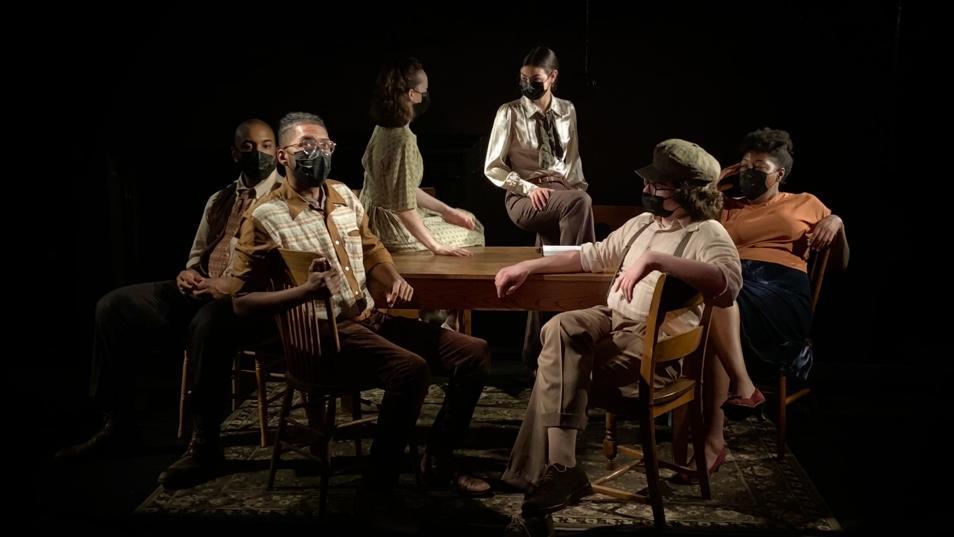“Soft Apples” to debut at Yale Cabaret this weekend
The new play explores the violence that theater can inflict.

Courtesy of Miguel Urbino
“Soft Apples,” a dark satire examining the intersection of art and community, will be staged at the Yale Cabaret from Thursday to Saturday.
Doug Robinson’s DRA ’24 45-minute play titled “Soft Apples” will be performed at the Yale Cabaret from March 10 to March 12. The show, which was co-proposed alongside director Gabrielle Hoyt DRA ’24 and producer Chloe Knight DRA ’24, is a dark satire written to examine how art intersects, sometimes harmfully, with communities.
“This is a play about the lip service that theaters, and sometimes artists, and sometimes even those who consume art participate in when it comes to the value and necessity of that art regardless of the harm that it causes,” said Robinson, who also acts as the play’s narrator. “This play is an examination of that with a bit of humor — it’s a satire — but it’s also incredibly, incredibly dark for a majority of the piece.”
Robinson wrote the piece in fall 2020, during his first semester at the School of Drama. He had been in Washington, D.C. during protests over the police murder of George Floyd and was helping to administer medical care to protestors.
“I was bandaging wounds, I was getting tear gas out of peoples’ eyes, I was providing water, ” Robinson said. After returning to campus, he felt disconnected from theater and art.
When his professor assigned the class to write something “impossible,” he began writing “Soft Apples,” channeling his emotions into the piece.
“Figuring out how to be creating this play together while, at the same time, not making physical, making real the very structures the play is critiquing has been such a process of discovering and figuring things out and relying on others,” Hoyt said.
According to Knight, showing the play at the Yale Cabaret, which often attracts a majority Drama School audience, provided a unique opportunity to weigh in on conversations about the ethics of performance that already exist.
Hoyt said that she is grateful for the care the cast, creative team and Cabaret leadership has put into staging the play and protecting each others’ well-being. For example, fight director Isuri Wijesundara DRA ’23 and co-fight advisors Malachi Beasley DRA ’23 and Michael Rossmy, devoted more rehearsal time to fight choreography than Hoyt had seen “full production processes with long fight scenes undergo,” despite the play’s short length and abbreviated rehearsal process.
The team has strived to keep production “people-first” every step of the way, she said.
“It’s just not worth it if people go through this upset,” Knight said. “No one’s making money, even if you do [theater] professionally, you’re not really making good money. It’s only worth it if there’s joy in the process.”
Preserving that joy has required flexibility and the meaningful evaluation of choices at every step of the process.
For Hoyt, Knight and Robinson, their co-leadership model has helped them develop a coherent, shared vision for the production. The tight-knit nature of School of Drama students has also helped limit barriers between the entire cast and production team, allowing for the sort of honest conversations the play requires.
“What people are coming into is not just a fun night at The Cab,” Robinson said. “We’re gonna have fun. We’re gonna have some drinks. We’re gonna have a couple laughs. We’re gonna see some good performances. But I’m frustrated when it comes to the theatrical landscape of this country, and even the theatrical landscape of the Yale School of Drama, and that frustration permeates this piece.”
This production includes depictions of gun violence, racial trauma, death and suicide.







